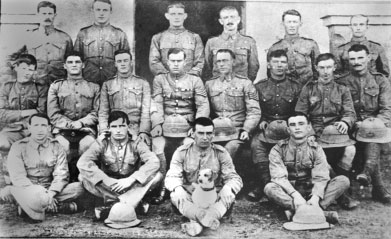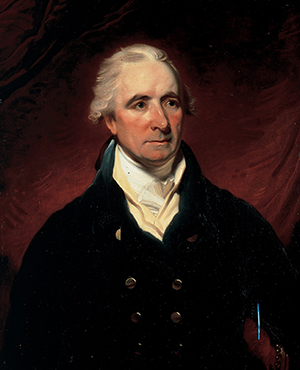
On 28 June 1920, five men from C Company of the 1st Battalion of the Connaught Rangers led a mutiny in Jalandhar, Punjab, in protest against martial law in Ireland. Following their surrender a few days later, 88 mutineers were court-martialled, of whom 77 were imprisoned; the leader, James Daly, was executed. The imprisoned mutineers were released in 1923; they returned to Ireland, and in 1936 were granted State pensions. In 1970 the remains of James Daly and two other mutineers were repatriated from India.
Listen to Tommy Graham, editor of History Ireland, discuss the complex web of issues arising from these events and their commemoration both in 1970 and today with
John Gibney, Cécile Gordon, Brian Hanley and Kate O’Malley.
This podcast is part of the History Ireland Hedge School programme supported by the Department of Culture, Heritage and the Gaeltacht under the Decade of Centenaries 2012–2023 initiative.
Podcast: Play in new window | Download
Subscribe: Apple Podcasts | RSS
 Born in Dublin’s Fishamble Street in 1746, but resident for most of his life in Tinnehinch, near Enniskerry, Co. Wicklow, Henry Grattan was the most noted, and certainly the most eloquent, of the eighteenth-century opposition ‘patriots’ in the Irish Parliament. He reached the height of his popularity with the concession of ‘legislative independence’ in 1782. Nineteenth-century constitutional nationalists would later refer to this, until its dissolution by the Act of Union in 1800, as ‘Grattan’s Parliament’, despite his almost permanent position on its opposition benches. In truth its ‘independence’ was a sham, and its inability to reform itself or grant Catholic Emancipation led to the polarisation of the 1790s and the bloody rebellion of 1798. By now a marginal figure, he spoke eloquently, but in vain, against the subsequent Act of Union. Less well known is his return to Parliament, this time in Westminster, in 1805, where he served until his death on 6 June 1820. To mark the bicentenary of his passing and to reassess his often misunderstood legacy, History Ireland editor Tommy Graham was joined, for an online Hedge School, by David Dickson, Patrick Geoghegan, Sylvie Kleinman and Tim Murtagh.
Born in Dublin’s Fishamble Street in 1746, but resident for most of his life in Tinnehinch, near Enniskerry, Co. Wicklow, Henry Grattan was the most noted, and certainly the most eloquent, of the eighteenth-century opposition ‘patriots’ in the Irish Parliament. He reached the height of his popularity with the concession of ‘legislative independence’ in 1782. Nineteenth-century constitutional nationalists would later refer to this, until its dissolution by the Act of Union in 1800, as ‘Grattan’s Parliament’, despite his almost permanent position on its opposition benches. In truth its ‘independence’ was a sham, and its inability to reform itself or grant Catholic Emancipation led to the polarisation of the 1790s and the bloody rebellion of 1798. By now a marginal figure, he spoke eloquently, but in vain, against the subsequent Act of Union. Less well known is his return to Parliament, this time in Westminster, in 1805, where he served until his death on 6 June 1820. To mark the bicentenary of his passing and to reassess his often misunderstood legacy, History Ireland editor Tommy Graham was joined, for an online Hedge School, by David Dickson, Patrick Geoghegan, Sylvie Kleinman and Tim Murtagh.